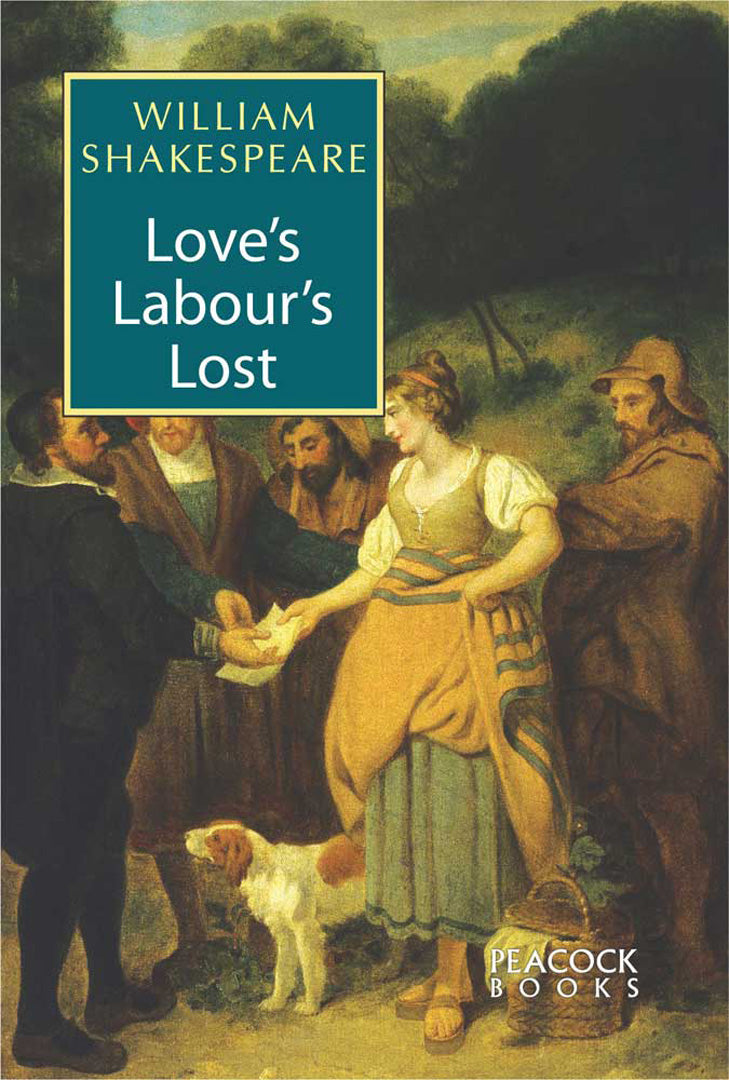Love’s Labour’s Lost
Love’s Labour’s Lost
William Shakespeare
Couldn't load pickup availability
Share

More Information
- ISBN13:
- Publisher: Atlantic Publishers and Distributors (P) Ltd
- Publisher Imprint: Peacock Books
- Publication Date:
- Pages: 186
- Binding:
- Item Weight:
- Original Price:
About The Book
Love’s Labour’s Lost, in five-acts, was written sometime between 1588 and 1597, and published in a quarto edition in 1598, with a title page suggesting that an earlier quarto had been lost. The 1598 quarto was printed seemingly from an authorial working draft showing signs of revision. It was first performed at the Inns of Court before Queen Elizabeth I. While there are no obvious sources for the play’s plot, the four main characters are loosely based on historical figures. The play draws on themes of masculine love and desire, reckoning and rationalization, and reality versus fantasy.
At the date of its first performance, audiences in Shakespeare’s day were familiar with the characters as their contemporaries. But as time passed it became less performed as the characters were less accessible to theater goers. The play’s sophisticated wordplay, pedantic humour, and dated literary allusions may also be cause for its relative obscurity, as compared to Shakespeare’s more popular works. However, in modern times the play has been performed innumerable times and adapted as an opera, a musical, and in several different radio, theater, and television productions.
The play’s central comic device is that four young men, the king of Navarre and three of his noblemen, dedicated to study and renounce the women, meet four young women and inevitably abandon their unrealistic ideals. After vowing to avoid women, the King and three of his friends have to host a princess and her three ladies. The four men fall in love and decide to court the women. To be sure, the audience is given a promise that the marriages will ultimately take place, after the gentlemen have had a year to think about themselves and come to maturity. Thus, the play ends with hope, perhaps the best kind of happy ending.
About The Author
William Shakespeare, byname Bard of Avon or Swan of Avon, (26th April, 1564, Stratford-upon-Avon, Warwickshire, England—23rd April, 1616, Stratford-upon-Avon), was English poet, dramatist, and actor. He is often called the English national poet and considered by many to be the greatest dramatist of all time. He occupies a position unique in world literature. Other poets, such as Homer and Dante, and novelists, such as Leo Tolstoy and Charles Dickens, have transcended national barriers, but no writer’s living reputation can compare to that of Shakespeare, whose plays, written in the late 16th and early 17th centuries for a small repertory theatre, are now performed and read more often and in more countries than ever before.
William Shakespeare was the eldest son of John Shakespeare, a prosperous glover and local dignitary, and Mary Arden, the daughter of a wealthy farmer. There are no records of his education, but he probably went to King’s New School—a reputable Stratford grammar school where he would have learned Latin, Greek, theology, and rhetoric—and may have had a Catholic upbringing. He might have seen plays by the travelling theatre groups touring Stratford in the 1560s and 70s. At the age of 18, he married Anne Hathaway, and the couple had three children—Susanna Hall, Hamnet Shakespeare, and Judith Quiney.
Shakespeare’s works span tragedy, comedy, and historical works, both in poetry and prose. His extant works, including collaborations, consist of approximately 38 plays, 154 sonnets, two long narrative poems, and a few other verses, some of uncertain authorship. These writings were brought together in what is known as the First Folio. His plays have been translated into every major living language and are performed more often than those of any other playwright.
Although Shakespeare is the most-recognised playwright in the world, very little of his life is actually known. No known autobiographical letters or diaries have survived to modern day, and with no surviving descendants, he is a figure both of magnificent genius and mystery. By 1592, he was well-known enough as a writer and actor to be criticized by jealous rival Robert Greene as an “upstart crow” and “Johannes Factotum” (a “Johnny do-it-all”) in his pamphlet Groats-worth of Wit. Although it is difficult to determine the chronology of his works, it is likely that by 1592 he had authored 11 plays, including Romeo and Juliet, Richard III, and A Midsummer Night’s Dream.

